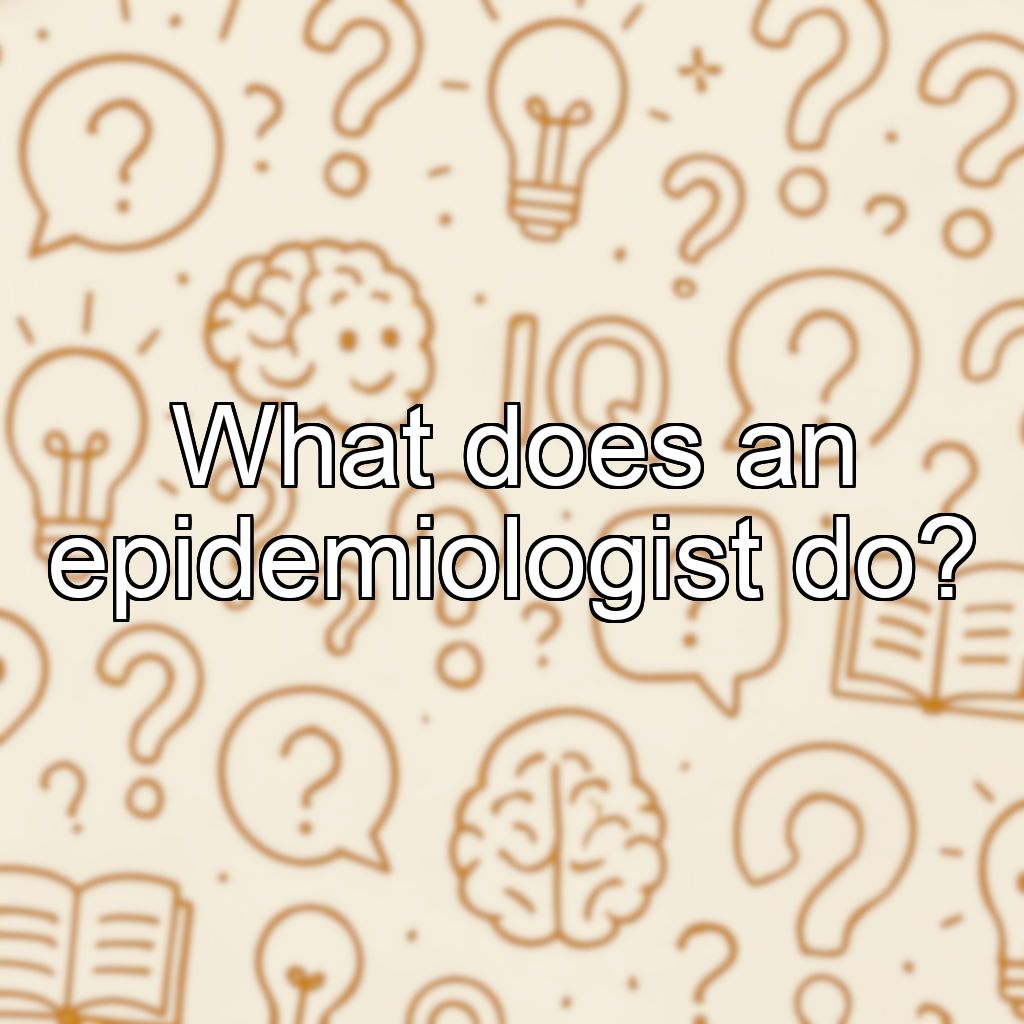What does an epidemiologist do?

What Does an Epidemiologist Do?
An epidemiologist is a public health professional who studies patterns, causes, and effects of health and disease conditions in defined populations. Their primary aim is to reduce the risk and occurrence of negative health outcomes through research, community education, and health policy.
Main Responsibilities
- Data Collection & Analysis: Epidemiologists gather data on diseases, injuries, and other health issues. They use statistical methods to analyze this information to identify trends and possible causes.
- Outbreak Investigation: When there is a disease outbreak (such as flu, COVID-19, or foodborne illnesses), epidemiologists investigate to determine the source, how it spreads, and who is at risk.
- Public Health Surveillance: They monitor patterns of disease occurrence and health indicators in the population to detect potential public health threats early.
- Research: Epidemiologists design and conduct studies (such as case-control or cohort studies) to understand risk factors for diseases and evaluate the effectiveness of interventions.
- Policy & Recommendations: Based on their findings, they help develop guidelines, policies, and recommendations for disease prevention and control.
- Education & Communication: They communicate findings to health professionals, policymakers, and the public to inform and improve public health practices.
Where Do Epidemiologists Work?
- Government agencies (e.g., Centers for Disease Control and Prevention, local health departments)
- Hospitals and healthcare organizations
- Universities and research institutions
- International organizations (e.g., World Health Organization)
- Private industry (e.g., pharmaceutical companies)
Overall, epidemiologists play a crucial role in protecting and improving public health by identifying health risks, guiding interventions, and helping to prevent disease outbreaks.